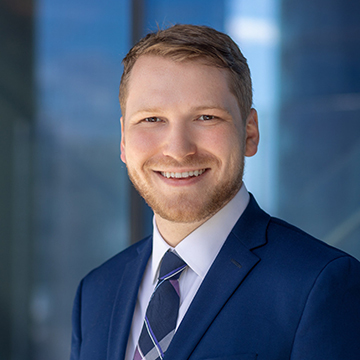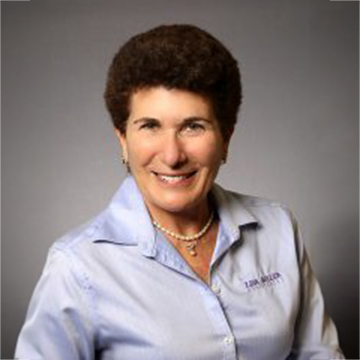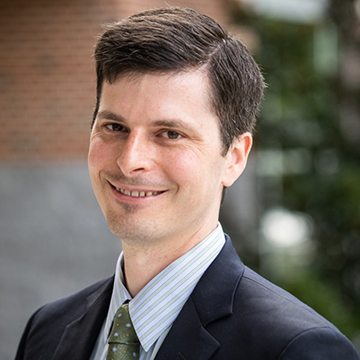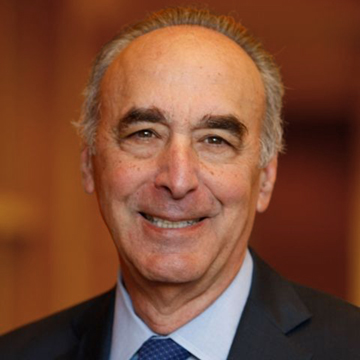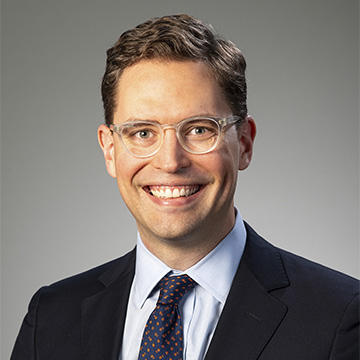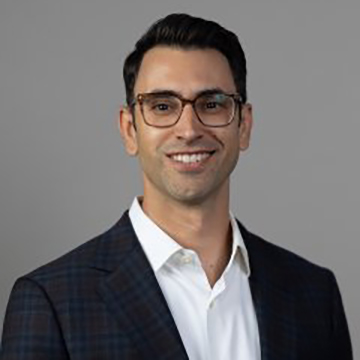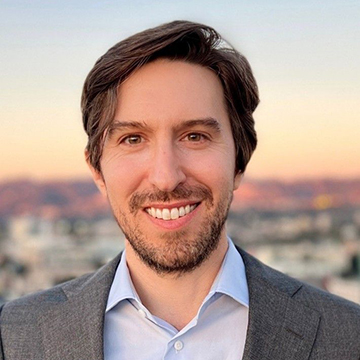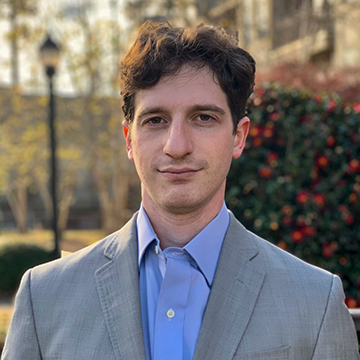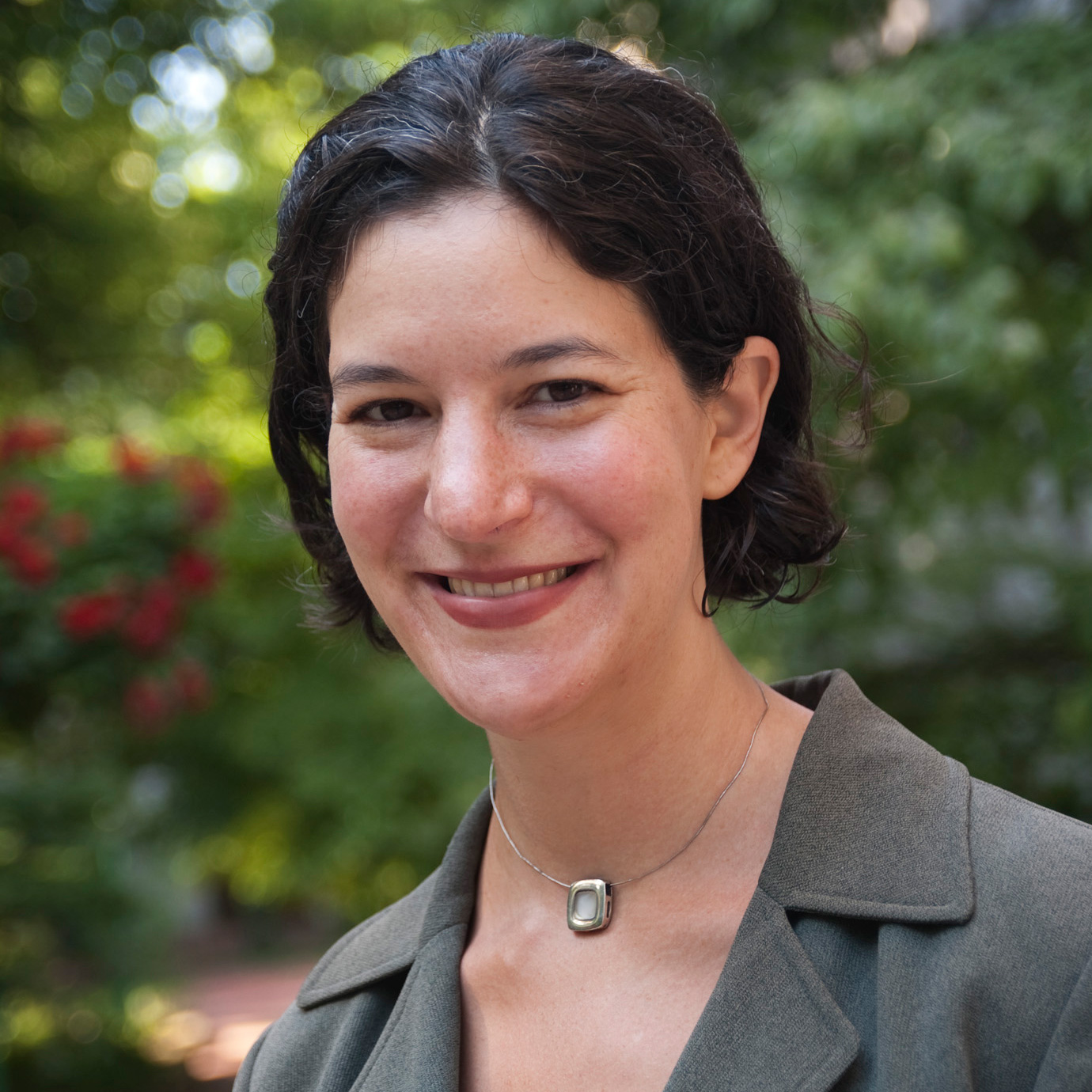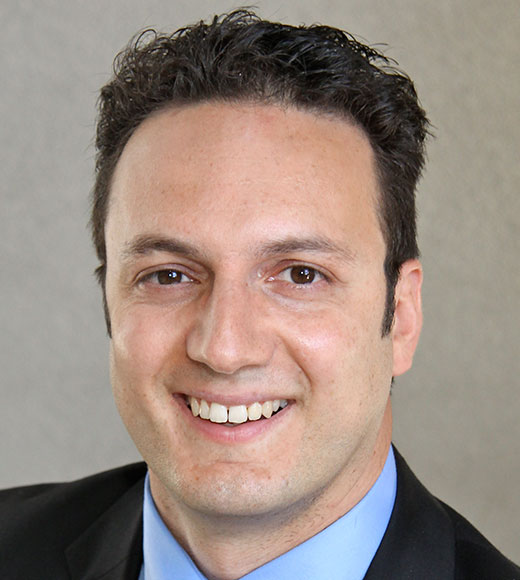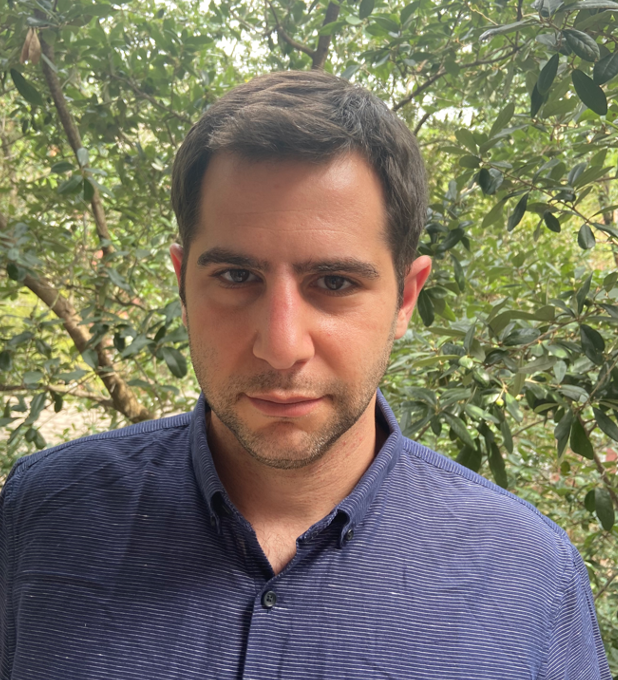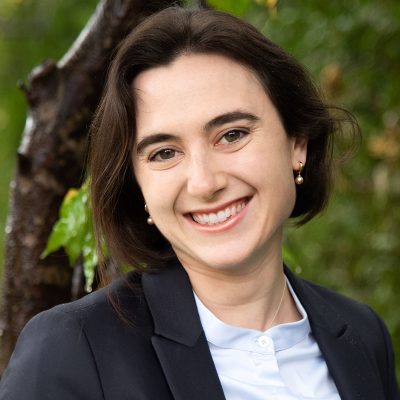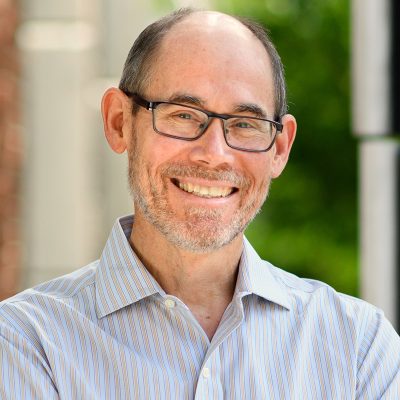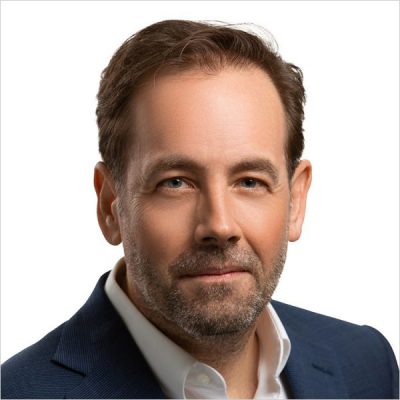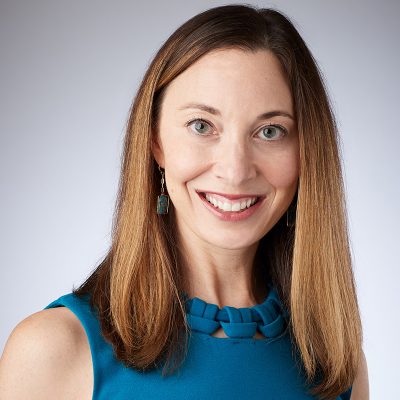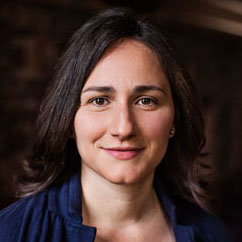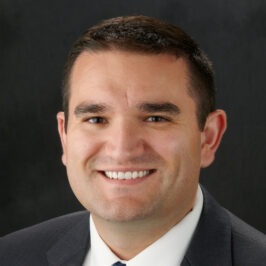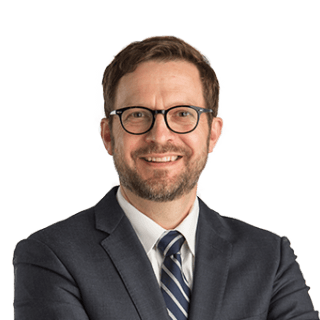Insurance Law Workshop
Virtual Speaker Series
Since 2021, the Insurance Law Center at the UConn School of Law has hosted a series of talks covering new ideas in insurance law and risk regulation. Insurance shapes—often decisively—many aspects of our lives, from limiting police misconduct to incentivizing better driving, from regulating self-driving cars to influencing the delivery and pricing of health care. Some of the world’s leading experts from the academy, the bar and the world of insurance regulators speak about current developments in their fields and speculate about what the future will look like. These fascinating and important conversations are being recorded and are available to the public.
Spring 2026
Artificial Intelligence, Judicial Evolution, and Insurance
January 29, 2026, 4 – 5 p.m. ET
Renee Henson, Associate Professor of Law, University of Missouri School of Law
AI-driven platforms have potential to inflict traditional injuries in new ways. Proprietary algorithms, trained on large volumes of personal data, can cause mental, emotional, and sometimes physical injuries via conversational exchanges, harmful content recommendations, and the promotion of extremist content. This “algorithmic liability” fundamentally challenges existing legal doctrines and statutory protections, thereby exposing deficiencies in current insurance coverage frameworks. Historically, courts dismissed algorithmic liability claims early in litigation, invoking Section 230 immunity or First Amendment protections, and by resisting classifying algorithmic tools as “products” for the purposes of product liability law. Recent jurisprudence, however, signals a critical turning point. On various grounds, courts are beginning to permit these algorithmic injury cases to proceed past the early procedural challenge phase of litigation. This judicial evolution introduces considerable uncertainty for any business that operates on the internet and utilizes potentially harmful algorithms. This Article analyzes emerging forms of liability and argues that they are likely to generate insurance demand in industries that are highly visible but whose coverage needs have been largely overlooked. Litigation exposure heightens the urgent need for affirmative insurance solutions. Traditional insurance policies, including commercial general liability, business owners, errors and omissions, and cyber insurance, present insurance gaps because they do not typically provide coverage for mental and emotional harm, narrowly define what constitutes a triggering “occurrence,” exclude intentional and sexual misconduct, and cover damages unlikely to arise with algorithmic injury claims. This Article contributes to the scholarly discourse by advocating for the development of specialized algorithmic injury liability insurance to fill existing insurance gaps, thereby protecting a broad range of internet businesses increasingly vulnerable to algorithmic liability claims.
Insurance Mandates as Information Technology: Evidence from Plaintiff Behavioral Response to a Mandatory Liability Insurance Regulation
February 12, 2026, 4 – 5 p.m. ET
Eserhan Eser, JSD Candidate, University of Chicago Law School
Before pursuing litigation, a plaintiff must weigh not only liability and potential damages but also the likelihood of collecting a judgment. The risk of defendant insolvency often deters suits. Statutory mandates for liability coverage remove this uncertainty: by converting private information about solvency into a public presumption of collectability, such mandates dissolve plaintiffs’ concerns. This paper argues that South Carolina’s 2017 liquor-liability insurance requirement functioned less as a risk-pooling reform than as an information technology, triggering a surge of dram-shop claims despite near-universal pre-mandate coverage. To test this mechanism, the study exploits the mandate’s abrupt enactment as a natural experiment, drawing on every relevant data stream—statewide dram-shop claim counts, insurer premium-and-loss statements, South Carolina crash data, federal accident data, alcohol-license records, alcohol consumption series, and Census population estimates. These quantitative findings are triangulated with qualitative evidence from interviews with brokers, plaintiff attorneys, and bar owners, along with social-media posts capturing contemporaneous reactions. Together, the evidence shows a clear structural break in claim trends after the mandate—unaccompanied by changes in coverage rates, industry growth, alcohol consumption, or crash incidence—confirming that informational frictions had suppressed tort claims until the mandate dissolved them.
Contracting for Deference: Discretionary Clauses and Judicial Review in Insurance Contracts
February 26, 2026, 4 – 5 p.m. ET
Meirav Furth-Matzkin, Associate Professor of Law, Tel-Aviv University; Visiting Professor of Law, NYU Law School
Sellers’ contracts often include provisions granting one-sided discretion to modify terms, terminate agreements, resolve disputes, or define obligations. These clauses risk making contracts illusory, reducing consumers’ ability to comparison shop, distorting competition, and shifting seller risks onto consumers. Despite their prevalence, such provisions have received little scholarly or regulatory scrutiny. This Article fills that gap by examining discretionary clauses in insurance contracts, especially those empowering health, life, and disability insurers to interpret plan terms and decide benefit claims. Under the Supreme Court’s 1989 decision in Firestone Tire & Rubber Co. v. Bruch, such clauses in employer-sponsored plans trigger a deferential standard of judicial review. Using a mixed-methods approach—including analysis of over 1,100 insurance contracts, interviews with insurance attorneys, and experiments with policyholders and lawyers—this Article finds that discretionary clauses have proliferated in employer-sponsored plans post-Firestone, persisting even in states that ban them, but remain rare in individual policies. The study also finds these clauses correlate with other “pro-seller” terms like arbitration and attorney-fee provisions. Discretionary clauses significantly influence consumers’ litigation expectations, attorneys’ case decisions, and settlement dynamics. Together with other pro-seller terms, they may shield insurers from meaningful oversight, raising broader implications for consumer contract law and regulation.
Legal Insurance and Its Limits
March 12, 2026, 4 – 5 p.m. EST
Nora Freeman Engstrom, Ernest W. McFarland Professor of Law, Stanford Law School
Courts are buckling under a staggering access-to-justice crisis, and familiar fixes—more legal aid, system simplification, and a deeper commitment to pro bono—are useful but inadequate. Bolder proposals, such as loosening UPL rules and abandoning Rule 5.4(d)’s ban on nonlawyer ownership, hold genuine promise. But both would dilute the longstanding lawyers’ monopoly. Into this roiling landscape, some now have a new idea: legal insurance. They suggest that legal insurance is the way to expand access to justice and are also quick to point out that—unlike other alternatives—legal insurance stands to benefit lawyers. We have seen this play before. In the 1970s, the bar seized on legal insurance as a solution to what was then seen as an urgent access-to-justice crisis afflicting the middle-class. For a time, legal insurance even took off. By the mid-1970s, there were reportedly 5,000 distinct plans in operation, and experts predicted that, by the mid-1980s, half of practicing lawyers would be participating. Of course, it didn’t come to pass—and remarkably, it seems the entire episode has been forgotten. This Article recovers the lost history of the country’s first experiment with legal insurance, explains why that experiment failed, and argues that the problems that insurance encountered can’t be fixed.
A Political Theory of Insurance
March 26, 2026, 4 – 5 p.m. EST
Roy Baharad, Associate Professor at the Faculty of Law, Hebrew University of Jerusalem
Meir Hai Yarom, Tel Aviv University, Buchmann Faculty of Law
We argue that insurance markets function as a form of direct democracy in establishing concrete legal norms. We begin with H.L.A. Hart’s observation that legal norms inherently contain “open texture”—unavoidable indeterminacy that prevents anticipation of all possible applications. While some laws are precise rules (speed limit of 55 mph), many are vague standards (no “excessive” speed), creating uncertainty about permissible behavior. When legislatures cannot feasibly create detailed rules for every contingency, they resort to broad standards, generating market demand for legal clarity. We contend that insurance carriers fill this gap by offering to eliminate risk in exchange for premiums, but crucially, they condition coverage on specific behavioral guidelines outlined in policies. To prevent moral hazard, insurers carefully formulate these requirements, effectively transforming vague standards into clear rules. Our key political insight is that these insurance conditions aren’t arbitrary impositions by insurers but are determined by market forces—the intersection of supply and demand. Insurers must respond to consumer preferences and risk tolerance, meaning the quasi-legislative function of insurance produces rules grounded in citizens’ actual preferences rather than top-down impositions. Thus, we propose that insurance doesn’t merely clarify standards; it enables market forces to “rulify” legal standards based on democratic preferences, making insurance what we identify as an essential proxy for direct democracy. This has notable implications for Hart’s own (rather problematic) notion of ‘acceptance’.
One Crisis After Another: Insurance Redlining, Landlord Arson, and the Strange Career of the FAIR Plan
April 9, 2026, 4 – 5 p.m. ET
Bench Ansfield, Assistant Professor of History, Temple University College of Liberal Arts
During the 1970s, a wave of landlord arson coursed through cities across the United States, destroying large portions of neighborhoods home to poor communities of color. Popular memory confuses the arson wave with the 1960s uprisings. Yet these fires were lit not for protest, but for profit, much of which was channeled through statewide FAIR (Fair Access to Insurance Requirements) plans that had been established in 1968 in direct response to the decade’s rebellions. This presentation, drawn from the recently published book, Born in Flames: The Business of Arson and the Remaking of the American City (W. W. Norton), chronicles the tumultuous first decades of the FAIR plans. In so doing, it unearths the untold history of the racially-stratified property insurance market, a key force in the making of U.S. urban inequality.
Lessons from the First Autonomous Vehicle Trial
April 23, 2026, 4 – 5 p.m. ET
Alex Lemann, Associate Professor of Law, Marquette University Law School
Autonomous vehicles have become a common sight on America’s streets and have generated a significant body of academic commentary. Tesla’s “Autopilot,” a low-level driver assistance system, has been implicated in over a dozen deaths in the U.S. alone, and yet had not faced a significant finding of liability—until August 2025. In Benavides v. Tesla, a jury held Tesla liable for the death of a young woman when a driver using Autopilot ran a stop sign at 75 miles per hour on a two-lane country road and collided with a parked car. The verdict imposed on Tesla $42 million in compensatory damages and $200 million in punitive damages and is currently being appealed. This paper will conduct a deep dive into the Benavides trial, with a focus on the facts established and the implications of the jury verdict for the nascent autonomous vehicle industry and for car insurers more generally.

Truth and Consequences: What Catastrophe Teaches Us About Homeownership and Underinsurance
September 11, 2025, 4 – 5 p.m. EST
Kenneth Klein, Louis and Hermione Brown Professor of Law, California Western School of Law
Despite the history of disasters followed by homeowners faced with terrible choices, debate remains about the most basic of questions. How many homeowners will be underinsured? How badly underinsured are they? Why? Are only disaster victims likely underinsured, or does disaster just expose and exacerbate the problem? How much does disaster make underinsurance worse? Whose fault is it? What can be done about it? Are those answers idiosyncratic, or do they describe a broader–perhaps nationwide–crisis of underinsurance? This talk presents the deepest and broadest data ever available to answer these questions and to address the implications of those answers. The data – obtained in response to multiple Public Information Requests to the California Department of Insurance — is aggregated from ~98%+ of every fire insurance claim of a home anywhere in California, whether incurring minor damage or suffering complete destruction, whether caused by a catastrophe event or not, across the years 2018-2023. This data shows that there is a barely hidden nationwide crisis of underinsurance, and that without decisive action from lawmakers, we risk creating a cascade of disasters wherein the intersection of climate change and insurance persistently and inevitably robs homeowners of any chance to fully recover what they have lost.
Recommended Reading: Kenneth S. Klein, Truth and Consequences: What Catastrophe Teaches Us About Homeownership and Underinsurance, 30 Lewis & Clark L. Rev. __ (2026). Available at SSRN: http://dx.doi.org/10.2139/ssrn.5139315.

Re-Examining Moral Hazard Under Inattention: New Evidence from Behavioral Data in Auto Insurance
September 25, 2025, 4 – 5 p.m. EST
Yizhou Jin, Assistant Professor, Strategic Management, Department of Management, University of Toronto- Scarborough
This paper uses novel sensor data to study drivers’ risky phone use behavior. The results challenge the conventional wisdom of moral hazard in insurance. We first identify handheld phone use behavior (“HPU”) and quantify its causal impact on accident likelihood (“riskiness”) using exhaustive fixed-effect models. We then find HPU to be risky but insensitive to both insurance coverage changes and weather shocks that increase its riskiness. This contradicts the prevailing theoretical prediction and empirical studies that have thus far relied on claims data alone. On the other hand, an experiment with a one-time text-message warning led to a persistent 15% HPU reduction. Drivers’ inattention to risk thus limits moral hazard.
Recommended Reading: Jin, Yizhou, Re-Examining Moral Hazard Under Inattention: New Evidence from Behavioral Data in Auto Insurance (May 19, 2023). Available at SSRN: https://ssrn.com/abstract=4453814 or http://dx.doi.org/10.2139/ssrn.4453814
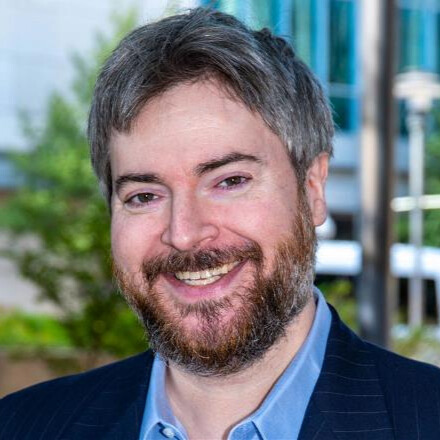
The Coming Health Insurance Transition
October 9, 2025, 4:15 – 5:15 p.m. EST
Brendan S. Maher, Professor of Law, Texas A&M University School of Law
For decades, the dominant form of private health insurance in the United States—by far—has been employment-based group health insurance. Somewhere in the range of 175 million employees and their families receive health care coverage through a system in which employers serve as financiers, procurers, administrators, and fiduciaries of the health insurance promise. An overwhelming percentage of those health insurance arrangements are governed by ERISA, with little room for state law. That era is going to end. This Article explains—for the first time anywhere—why and how. Because of the tremendous and as-yet unrecognized power of an obscure-sounding funding arrangement called the Individual Coverage Health Reimbursement Account (ICHRA), a massive insurance transition—away from ERISA-governed group insurance and toward individual insurance—is going to occur. It’s already underway. The end result, whether sooner or later, will be that individual insurance sold on government exchanges will become the dominant form of private insurance in the land. It will happen much like how retirement accounts replaced pensions in the retirement context. The second claim this Article makes is normative. The transition from pensions to retirement accounts made society worse off. Yet this benefit transition—from ERISA insurance to individual insurance—is one that could make society better off, if sensibly regulated. A reasonable transition to individual insurance will likely have salutary effects on the exchanges and their offerings; on employees; on employers; and on regulators.
Recommended Reading: Maher, Brendan S., The Coming Health Insurance Transition (February 25, 2025). Cornell Law Review, Forthcoming, Texas A&M University School of Law Legal Studies Research Paper Forthcoming, Available at SSRN: http://dx.doi.org/10.2139/ssrn.5160777

Catastrophic Climate Risk and The Limits of Private Markets
October 23, 2025, 4 – 5 p.m. EST
Adam Solomon, Assistant Professor at the NYU Stern Department of Finance
Increasing climate risk is making property insurance unaffordable and unavailable, revealing frictions in the reinsurance and catastrophe bond markets designed to absorb such tail events. I study a novel policy response in Australian home insurance: government-provided, mandatory, risk-based reinsurance for cyclone damage. In this program, the government reinsures the cyclone risk, while the private market covers the remaining idiosyncratic risk. I find that public reinsurance leads to a 21 percent decrease in home insurance premiums and an 11 percent increase in the probability of insurance being offered at all. I demonstrate these effects are not a subsidy; the benefits stem from eliminating large, pre-existing markups in private reinsurance and catastrophe bond markets and flow to the insurers most constrained by them. The primary driver of this markup reduction is the neutralization of the high premium for spatially-correlated risk, with increased competition leading to additional indirect benefits. This shows that insurance dysfunction is downstream from the frictions in tail-risk reinsurance, and targeted, cost-neutral, interventions in the latter can improve the former.
Recommended Reading: Solomon, Adam. “Catastrophic Climate Risk and The Limits of Private Markets.” Working Paper, 2025. https://adam-solomon.com/CyclonePaper.pdf

The Need for a Contra Pertinacia Canon of Insurance Policy Construction
November 6, 2025, 4 – 5 p.m. EST
Jeffrey W. Stempel, Doris S. & Theodore B. Lee Professor of Law, University of Nevada William S. Boyd School of Law
Although the Latin word pertinacia can have the positive meanings of perseverance, firmness, and constancy, it also has negative meanings of obstinacy, defiance, and stiffness. In the realm of insurance policy construction, pertinacia manifests in the refusal of insurers (both individual carriers and the industry as a whole) to define terms (or improve the existing definitions of terms) that have proven problematic as reflected by a significant history of disputes over the meaning of the undefined or poorly defined term. Examples are the commonly litigated issues of what comprises an “accident” or “physical” injury, “loss”/”loss of use”, “damage”, and “professional services.”
Where insurers have persisted in failing to define a term or correct a recurringly problematic definition, a party in dispute with the insurer regarding the meaning of the term should benefit from a contra pertinacia canon of construction that creates a rebuttable presumption in favor of an interpretation favoring coverage. Although the contra pertinacia canon cannot create coverage in the face of clearly contrary policy language supported bycontextual/extrinsic evidence, properly applied it would enhance the well-established contra proferentem canon so that in practice an insurer that persists in failing to clarify coverage cannot engage in opportunistic efforts to deploy its repeat player status to exploit undefined terms to the detriment of policyholders.

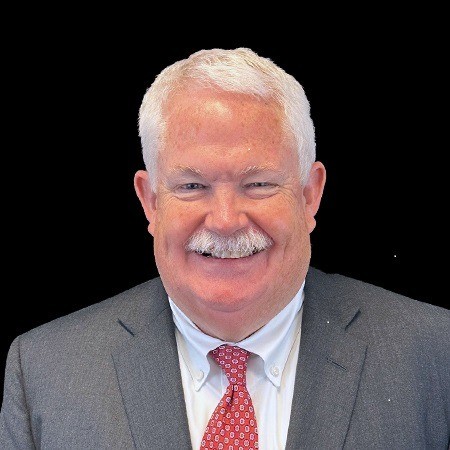
Understanding Insurance Law (7th ed. 2025) and the Arc of Insurance Law’s Evolution
November 20, 2025, 4 – 5 p.m. EST
Robert H. Jerry, Floyd R. Gibson Missouri Endowed Professor Emeritus of Law, University of Missouri School of Law
Douglas Richmond, Senior Vice President at Lockton Companies, LLC
Forty years ago, Robert Jerry, a young law professor at the University of Kansas, began writing what Matthew Bender, Inc. would publish in 1987 as the first edition of Understanding Insurance Law. One of his students at the time was Doug Richmond, who would later specialize in insurance law, manage the insurance coverage and extracontractual liability practice of a large regional law firm, become Managing Director at Aon, and today Senior Vice President with the Lockton companies in Kansas City. In 2007, Richmond became Jerry’s co-author for the 4th edition of UIL, and the two of them have now collaborated on the last four editions, the most recent of which was published in the spring of 2025. Thus, for four decades, UIL has been a key resource for lawyers, judges, insurance students, and scholars seeking an understanding of various aspects of insurance law. Currently, the 800+ citations to the treatise in secondary literature include citations in approximately 575 law review articles, and it is cited in nearly 80 reported judicial opinions. In this program, Jerry and Richmond will discuss how Understanding Insurance Law came to be, with particular emphasis on how the field of insurance law has evolved in the last 40 years and how UIL has adapted to our changing field.
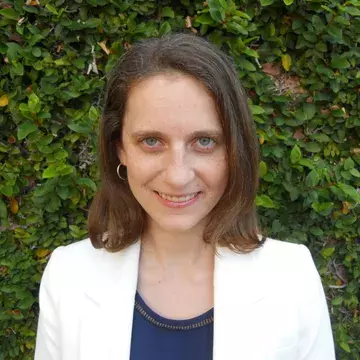
The Cultural Infrastructure of Actuarial Fairness
December 4, 2025, 4 – 5 p.m. EST
Barbara Kiviat, Assistant Professor of Sociology, Columbia University
In the U.S., the notion that predictive data are fair to use in price-setting sits at the center of property and casualty insurance. In this talk, I unpack the cultural infrastructure that has to be in place for such actuarial fairness to go uncontested. I draw on the cases of credit-based insurance scoring and telematics data to show that in addition to statistical validity, people rely on shared narratives and systems of categorization as they morally reason about tying car insurance prices to various sorts of past behavior. For rating factors to be broadly accepted as fair, the stories we tell and the categories we take for granted must normatively align. This talk draws from my ongoing book project which seeks to understand the conditions under which mathematical relationships do and don’t work as moral arguments.

Insurability and Liability for AI Technologies
January 30, 2025, 4:00 p.m. – 5:00 p.m. EST
Mark Geistfeld, Sheila Lubetsky Birnbaum Professor of Civil Litigation, NYU Law School
AI decision-making is opaque, a black box which has convinced tort scholars that it will not be feasible to prove negligence or defect-based forms of products liability for these technologies. Largely relying on mainstream theory, these scholars argue that subjecting the commercial distributors of AI technologies to strict liability for AI-caused harms is the most promising regulatory approach. A closer look shows otherwise. For deterrence reasons, strict liability is layered on top of negligence liability and significantly increases both litigation costs and premiums for liability insurance. And for insurance reasons, liability insurance is layered on top of first-party insurance and significantly increases the costs of injury compensation. By expanding the scope of liability, strict enterprise liability would drive up total insurance costs while still requiring a baseline of negligence-like safety performance standards. Accounting for this problem of insurability shows why an effective governance regime for AI technologies will combine negligence liability, narrowly tailored rules of strict liability, and administrative regulation in complementary risk-reducing manners that minimize the associated insurance costs of compensating AI-caused harms.
Recommended Reading: Mark A. Geistfeld, Insurability and Liability for AI Technologies (2025).
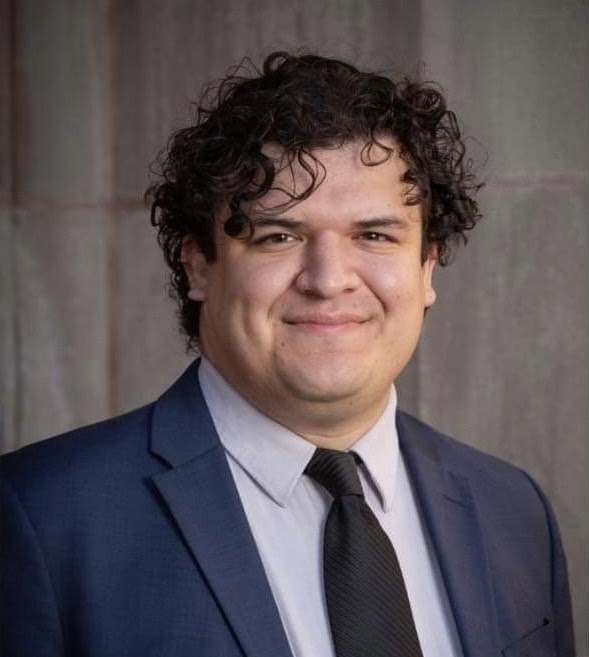
Reforming the Taxation of Life Insurance
February 13, 2025, 4 – 5 p.m. EST
Andrew Granato, Ph.D. Candidate, Yale School of Management
The purpose of life insurance was once to provide financial protection to “widows and orphans” upon an untimely death. Now, wealthy investors also use it to avoid paying taxes. Thanks to federal tax benefits for life insurance, insurers now market policies designed explicitly as vehicles for tax avoidance, with insurance protection as an afterthought. Well-advised taxpayers accomplish this disappearing tax trick through a “cash value” policy. These policies contain an internal savings balance, which over time can transform the policy from an insurance product into an investment account that can still qualify for insurance tax exemptions. No other investment form offers the same combination of tax benefits with minimal restrictions. In the new market for life insurance, the current rules increasingly operate as a subsidy to the rich, invite abusive planning, and can obstruct broader capital income tax reforms. This talk offers a comprehensive study of the taxation of life insurance. It presents new empirical analysis of trends in life insurance ownership, finding that policies issued today are larger and more concentrated among the richest taxpayers. It then presents a framework for evaluating reforms that can be implemented by Congress, the IRS, and the judiciary, and considers the tradeoffs of different reform directions. It ultimately proposes capping the size of tax-preferred policies.
Recommended Reading: Ari Glogower & Andrew Granato, Reforming the Taxation of Life Insurance, 44 Va. Tax. Rev. 235 (forthcoming, 2025).

Barriers to Insurance Innovation
February 27, 2025, 4 – 5 p.m. EST
Peter Molk, University of Florida Levin College of Law
Because of their ability to aggregate and diversify many risks, insurers can offer risk-spreading at a price that makes sense for policyholders to pay. Yet there are risks that insurers refuse to cover, even though they could bear them better than policyholders. Property insurance contracts, for example, place on policyholders the risk that rebuilding costs will be greater than expected, or that a home will be destroyed by flood or nuclear damage, or that exposure to natural hazards will change over time, or that home equity values will rise or fall. Long-term care insurance commonly makes policyholders, rather than insurers, bear the risk of unexpected industry-wide cost increases or that care will be more expensive than anticipated. Liability insurers exclude coverage for damage caused by pollution. Directors and officers insurers do not cover court-awarded increases in merger consideration even when executives breached their fiduciary duties. The absence of these risk transfers is surprising, since insurers are likely better situated to bear them than policyholders would be. This talk identifies several of these anomalies and shows that traditional explanations for their existence are lacking. Its hypothesis is that the lack of coverage is due to structural forces that deter innovation in insurance policies. Risks of any meaningful consequence must be reinsured by global reinsurance firms, and reinsurers will have little appetite for novel risks that are difficult to price, especially when, as with any new risk, those risks are tiny relative to reinsurers’ massive portfolios. Moreover, the annual nature of reinsurance contracts means that reinsurers also lack incentives to incubate new coverage that, while small today, may grow large in the future. I end by considering a variety of policy responses.
Recommended Reading: Peter Molk, Barriers to Insurance Innovation, Yale J. on Reg. ___ (forthcoming, 2025).


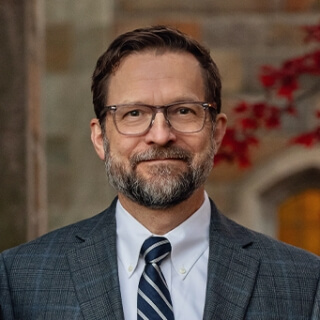
Regulating Robo-Advisors in an Age of Generative Artificial Intelligence
March 13, 2025, 4 – 5 p.m. EST
Daniel Schwarcz, University of Minnesota Law School
Tom Baker, University of Pennsylvania Carey Law School
Kyle D. Logue, University of Michigan Law School
New generative Artificial Intelligence (AI) tools can increasingly engage in personalized, sustained and natural conversations with users. This technology has the capacity to reshape the financial services industry, making customized expert financial advice broadly available to consumers. However, AI’s ability to convincingly mimic human financial advisors also creates significant risks of large-scale financial misconduct. Which of these possibilities becomes reality will depend largely on the legal and regulatory rules governing “robo-advisors” that supply fully automated financial advice to consumers. This Article consequently critically examines this evolving regulatory landscape, arguing that current U.S. rules fail to adequately limit the risk that robo-advisors powered by generative AI will convince large numbers of consumers to purchase costly and inappropriate financial products and services. Drawing on general principles of consumer financial regulation and the EU’s recently enacted AI Act, the Article proposes addressing this deficiency through a dual regulatory approach: a licensing requirement for robo-advisors that use generative AI to help match consumers with financial products or services, and heightened ex post duties of care and loyalty for all robo-advisors. This framework seeks to appropriately balance the transformative potential of generative AI to deliver accessible financial advice with the risk that this emerging technology may significantly amplify the provision of conflicted or inaccurate advice.
Recommended Reading: Daniel Schwarcz, Tom Baker & Kyle D. Logue, Regulating Robo-Advisors in an Age of Generative Artificial Intelligence, Wash. & Lee L.Rev. (forthcoming, 2025).

Losing Ground: Values at Risk in an American Floodplain
March 27, 2025, 4 – 5 p.m. EST
Rebecca Elliott, London School of Economics
How do families, communities, and governments confront problems of loss–both experienced and anticipated–as the climate changes? The talk will explore this question through an investigation of the U.S. National Flood Insurance Program (NFIP), specifically the social life of its key risk technology: the flood map. Like other risk and insurance technologies, the map disseminates information about value and risk in order to tame uncertainty and enable prudent action oriented toward the future. However, drawing together interview, ethnographic, and documentary data, I find that for its users on the ground, the map does not simply measure ‘value at risk’ in ways that produce clear strategies for protecting property values from flooding. Instead, it puts values–beyond simply the financial worth of places–at risk, as well as implicates past, present, and future risks beyond simply flooding. By informing and enlarging the stakes of what needs protecting, and from what, I argue that plural and interacting ‘values at risk’ shape how people live with and respond to climate-related losses as framed by insurance.
Recommended reading: Rebecca Elliott, ‘Scarier than Another Storm’: Values at Risk in the Mapping and Insuring of US Floodplains, 70 The British Journal of Sociology 1067 (2019), available at https://doi-org.ezproxy.law.uconn.edu/10.1111/1468-4446.12381.

When Insurers Exit: Climate Losses, Fragile Insurers, and Real Estate Markets
April 10, 2025, 4 – 5 p.m. EST
Pari Sastry, Columbia Business School
How homeowners insurance markets respond to growing climate losses and how this impacts mortgage market dynamics? Using Florida as a case study we show that traditional insurers are exiting high risk areas, and new lower quality insurers are entering and filling the gap. These new insurers service the riskiest areas, are less diversified, hold less capital, and 20 percent of them become insolvent.
We trace their growth to a lax insurance regulatory environment. Yet, despite their low quality, these insurers secure high financial stability ratings, not from traditional rating agencies, but from emerging agencies. Importantly, while these ratings are high enough to meet the requirements set by government-sponsored enterprises (GSEs), we find that these new insurers would not meet eligibility thresholds if subjected to traditional rating agencies’ methodologies. We then examine the implications of these dynamics for mortgage markets. We show that lenders respond to the decline in insurance quality by selling a large portion of exposed loans to the GSEs. We quantify the counterparty risk by examining the surge in serious delinquencies and foreclosure around the landfall of Hurricane Irma. Our results show that the GSEs bear a large share of insurance counterparty risk, which is driven by their mis-calibrated insurer eligibility requirements and lax insurance regulation.
Recommended Reading: Parinitha Sastry, Ishita Sen & Ana-Maria Tenekedijieva, When Insurers Exit: Climate Losses, Fragile Insurers, and Mortgage Markets (Dec. 23, 2023).

Understanding Catastrophe Insurance as a Commons?
April 24, 2025, 4 – 5 p.m. EST
Laurence Barry, PARI (Programme de Recherche sur l’Appréhension des Risques et des Incertitudes – ENSAE/Sciences Po) – CREST-ENSAE
This paper suggests that catastrophe insurance schemes should be considered within the framework of public goods and commons, and as a form of polycentric organization whose success depends on collective action. The first part situates catastrophe insurance within the “state withdrawal hypothesis:” while neoliberalism is usually understood as promoting a shift from social and solidary insurance programs to private, market-oriented ones, this does not apply to catastrophe insurance. The second part shows that one of the reasons for the persistence of public intervention in catastrophe insurance schemes is their public good dimension. Although catastrophe insurance is not a common pool resource, it is similar to a toll good that benefits from a large number of users. It is therefore like the “knowledge commons” that Ostrom later studied. The last part highlights the polycentricity of insurance systems and the challenge this poses to collective action for the sake of prevention.



Interest Groups, Ideology, and Indirect Lobbying: The Rise of Private Health Insurance in the United States
September 12, 2024, 4 – 5 p.m.
Dr. Marcella Alsan, Harvard University
Yousra Neberai, Harvard University
Xingyou Ye, Princeton University
This study examines the rise of private health insurance in the United States post-World War II era. We investigate the role of the American Medical Association (AMA), which financed a campaign against National Health Insurance directed by the country’s first political public relations firm, Whitaker & Baxter’s (WB) Campaigns, Inc. The AMA-WB Campaign had two key components: (1) physician outreach to patients and civic organizations; and (2) mass advertising that tied private insurance to “freedom” and “the American way.” We bring together archival data from several novel sources documenting Campaign intensity. We find a one standard deviation increase in campaign exposure, which explains about 20% of the increase in private health insurance enrollment and a similar decline in public opinion support for legislation enacting national health insurance. We also find suggestive evidence that the Campaign altered the narrative of how legislators and pollsters described health insurance. These findings suggest the rise of private health insurance in the U.S. was not solely due to wartime wage freezes, collective bargaining, or favorable tax treatment. Rather, it was also enabled by an interest group-financed campaign that used ideology to influence the behavior and views of ordinary citizens.
Recommended Reading: Marcella Alsan, Yousra Neberai & Xingyou Ye, Interest Groups, Ideology, and Indirect Lobbying: The Rise of Private Health Insurance in the United States (2024).

Risk, Insurance and the Welfare State
September 26, 2024, 4 – 5 p.m.
Dr. Rachel Z. Friedman, Tel Aviv University
At the core of the modern welfare state is the institution of social insurance, which provides event-conditioned benefits through a publicly orchestrated system of contributions and distribution. At the core of the modern welfare state is the institution of social insurance, which provides event-conditioned benefits through a publicly orchestrated system of contributions and distribution. Tracing an intellectual history of the practice from the time of the French Revolution through the present, this talk offers an account of how and why social insurance became one of the central policy tools of wealthy democracies. This history reveals that the way in which risk is conceived and calculated has important consequences for the design of social policy. It also shows that the capacity of social insurance to accommodate a plurality of normative principles and aims helps to account for its prominence and political resilience as an institution.
Professor Friedman’s book, Probable Justice: Risk, Insurance, and the Welfare State (Chicago: 2020) is available for those interested in reading further.

Tax Enforcement by the Private Sector: Deputizing Tax Insurers
October 10, 2024, 4 – 5 p.m.
Heather M. Field, J.D., UC Law, San Francisco
The IRS is outgunned when trying to ensure compliance by large corporations and other sophisticated taxpayers, but the private sector might be able to help. This talk argues for using a private sector party—tax insurers—to expand the IRS’s enforcement abilities. Tax insurance is just insurance: If an insured tax position is successfully challenged by a tax authority, the insurer commits to paying the additional taxes owed (plus interest and penalties), up to the policy limit. This talk proposes that the IRS take advantage of insurers’ informational and capacity advantages by effectively deputizing insurers as private sector tax enforcers, treating the positions they insure as having been “sustained” in a private “audit.” With the right combination of sticks and carrots, private sector tax enforcers could be incentivized to live up to their commitment to “sustain” only strong positions, and taxpayers could be incentivized to pursue “audits” by private sector tax enforcers that live up to those commitments. The talk also identifies the potential concerns the proposal would need to overcome to harness a growing private sector industry for the public good.
Recommended Reading: Heather M. Field, Tax Enforcement by the Private Sector: Deputizing Tax Insurers, 99 Ind. L.J. 1179 (2024).
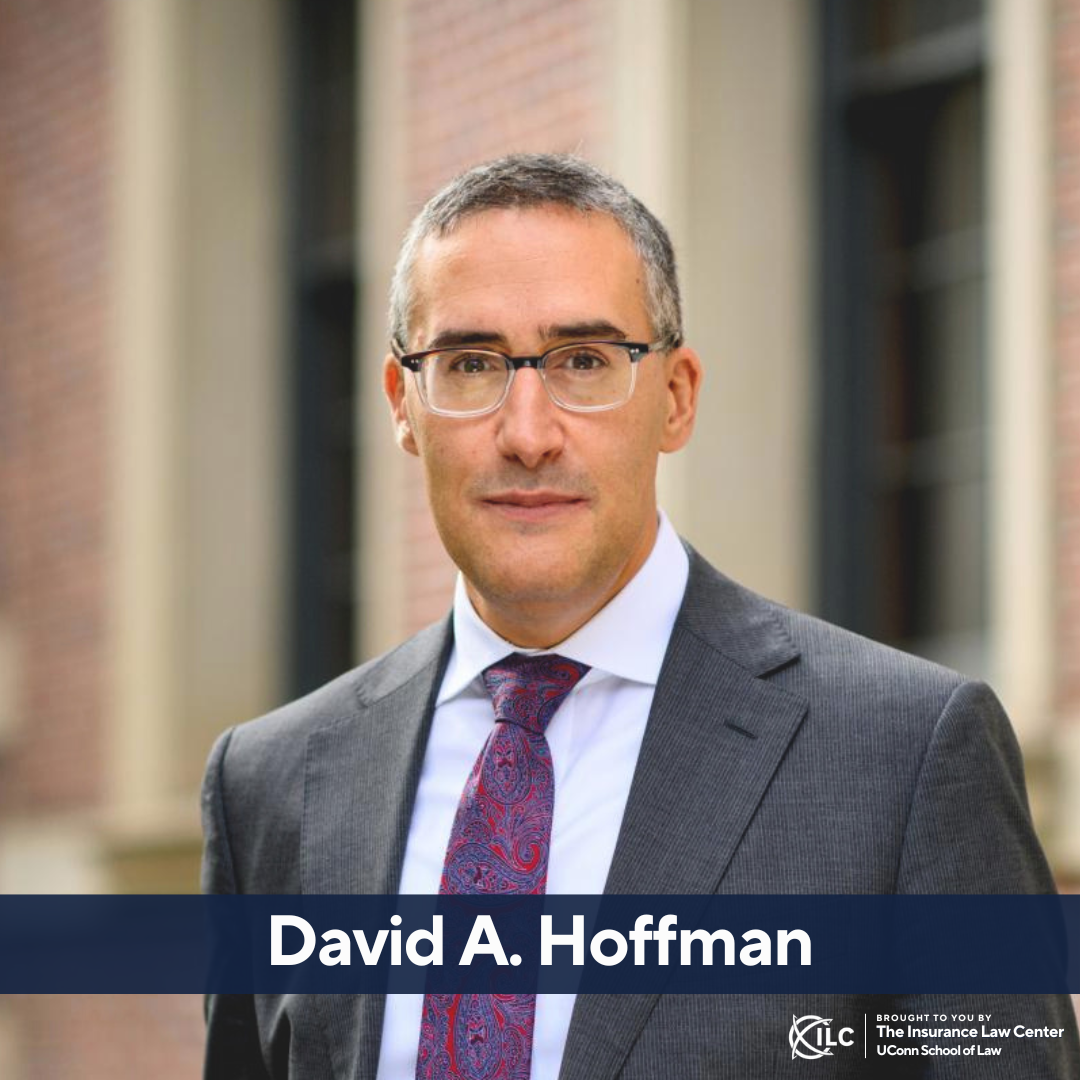

Insurers as Contract Influencers
October 24, 2024, 4 – 5 p.m.
David A. Hoffman, Penn Carey Law School
Rick Swedloff, Rutgers Law School
Contract boilerplate degrading consumers’ litigation options–terms mandating arbitration, exculpating liability, requiring individualized litigation and shifting risk–has proliferated in the last generation. We investigate how insurers influence boilerplate’s adoption and content. Interviewing participants in the liability insurance industry, we show that insurers refine boilerplate language, teach policyholders about its efficacy, and decline coverage when it is absent. At the same time, they rarely offer price breaks for adopting boilerplate, suggesting that at least some of the cost savings from consumer boilerplate may end up in the coffers of insurance firms rather than their clients. Insurers are surprisingly skeptical about the value of terms that have particularly excited proceduralists and consumer contract scholars—arbitration and liability waiver clauses—and believe their spread does not materially affect the risks that they insure.
Recommended Reading: David A. Hoffman and Rick Swedloff, Insurers as Contract Influencers (July 29, 2024).

Reliability Insurance
November 7, 2024, 4 – 5 p.m.
Roy Baharad, SJD Candidate, University of Chicago Law School
Liability for harm not only incentivizes individuals to exercise optimal care and guarantees compensation to victims; it also serves the interest of potential injurers. The prospect of liability equips subjects with a “right to be sued,” which enables them to credibly signal their prudence in potentially harmful interactions, thus substantiating trust among counterparties. Liability for medical malpractice, for instance, bolsters the reliability of physicians exactly because they would be the ones suffering the cost of inadequate treatment. Oddly, however, individuals and businesses regularly waive their “right to be sued” by purchasing liability insurance. At its core, insurance is thus in tension with the informational power of liability. This talk examines when and how insurance might undermine credibility and attenuate policyholders’ reliability in the eyes of actors with whom they interact—business counterparties, employees, investors, audiences, regulators or patients.
Recommended Reading: Roy Baharad, Reliability Insurance

Leveraging Insurance Contracts for Climate Action
November 21, 2024, 4 – 5 p.m.
Dr. Franziska Arnold-Dwyer, University College London
The contractual relationships between an insurer and its policyholders contains enormous potential for insurers to support their policyholders to reduce environmentally harmful activities and take adaptation measures that make their property more resilient to climate risks. But there are important legal pitfalls here as well. This talk examines enabling approaches throughout the policy life cycle, including raising policyholder awareness of climate risk and climate change mitigation/adaptation measures, assessing policyholders’ climate-related risk profiles at the pre-contractual stage, price signalling, exercising influence through terms and conditions, and green claims and reinstatement.
Recommended Reading: Franziska Arnold-Dwyer, A Legal Framework for Net Zero Aligned Insurance Products, 29 Conn. Ins. L.J. 1 (2022-3).

Is Insurance “Just a Contract” or a “Just Contract”?
December 5, 2024, 4 – 5 p.m.
Chaim Saiman, J.D., Villanova Law School
Courts never tire of saying an insurance policy is “just a contract” and subject to ordinary rules of contract law, especially the plain language approach that strives for formal neutrality between the parties. Yet courts also frequently rely on a narrative that an insurance policy strives to be a “just contract” with special pro-policyholder rules that reach beyond the plain language. How is insurance simultaneously “just a contract” and a “just contract?” When the issue relates to scope or breadth of coverage—whether a loss is included within the bounds of the policy—strict construction gains the upper hand. But when the focus is on the suite of rights that flow from coverage—such as expanded remedies available upon an insurer breach—courts craft coverage rights which are deeper than what can be derived from the plain meaning of the policy. This talk demonstrates the importance of this distinction and demonstrates its implications.
Recommended Reading: Chaim Saiman, Is Insurance “Just a Contract” or a “Just Contract”?, 83 Md. L. Rev. 819 (2024).
Climate Litigation Risk: Is there Shelter from the Storm?
January 25, 2024, 4 – 5 p.m.
Susan Doering, Willis Towers Watson
Michelle Radcliffe, Willis Towers Watson
Martin Lockman, Sabin Center for Climate Change Law, Columbia University
Climate change creates risks to health, property, and earnings. It also creates liability risk when injured parties sue entities for which insurers have provided coverage. In this talk, the authors assess the magnitude of such risks (which depend both on real world physical systems and on policy language and its interpretation) and suggest how they can be mitigated.
Recommended Reading:
White Paper: Climate Litigation Risk — Is there shelter from the storm?
Oh, Florida!
February 8, 2024, 4 – 5 p.m.
Patricia Born, Florida State University School of Business
Lisa Miller, Lisa Miller & Associates, Tallahassee
Peter Molk, University of Florida Levin College of Law
The Glaring Gap in Tort Theory
February 22, 2024, 4 – 5 p.m.
Kenneth Abraham, University of Virginia School of Law
Catherine Sharkey, New York University School of Law
The glaring gap in tort theory is its failure to take adequate account of liability insurance. Most of tort theory fails to recognize the central role that liability insurance plays in tort law and litigation, or mentions liability insurance only briefly, treating it as exogenous to tort law itself, as if it were merely a contingent source of outside financing, like a bank that passively guarantees a loan, rather than recognizing its active and central role. It is no exaggeration to say that liability insurance played a defining role in creating modern tort liability, and that modern tort liability would not look like at all like it looks today if liability insurance had not existed and influenced tort law’s development in the ways that it did.
Recommended Reading:
Abraham, Kenneth S. and Sharkey, Catherine M., The Glaring Gap in Tort Theory, 133 Yale L.J. 2165 (2024).
Regulatory Competition in the U.S. Life Insurance Industry
March 7, 2024, 4 – 5 p.m.
Johnny Tang, Cornell University
This presentation examines the consequences of competition between jurisdictions in the U.S. life insurance industry. States vie to attract insurers by setting lower capital requirements, but the costs of such actions are borne by consumers in other states. The paper documents empirical evidence of competition between state regulators and its effects on the supply of life insurance. It then develops a quantitative model of the insurance market to evaluate the effects of this competition. Its main finding is that competition leads regulators to set lower capital requirements, which increases default risks but also increases consumer surplus by lowering prices. On net, these effects decrease regulators’ utility based on regulators’ revealed-preference objective functions.
Recommended Reading:
Johnny Tang, Regulatory Competition in the US Life Insurance
The Egalitarian Case for Actuarial Fairness
March 21, 2024, 4 – 5 p.m.
Travis Pantin, University of Connecticut School of Law
Actuarially fair insurance prices are not only efficient (in the sense of maximizing social welfare) but will also — under a reasonable set of assumptions — distribute the social surplus among insureds more equally than a pricing schedule that charges heterogeneous insureds the same amount. This “egalitarian” argument for actuarial fairness can help to explain the legal and social persistence of the claim that actuarially fair prices actually are fair. The persistence of such a claim is puzzling because, as the paper shows, the most common arguments in support of actuarially-fair prices (namely, those grounded in adverse selection concerns, and those grounded in the principle that each insured ought to “carry his own weight”) fail, even on their own terms. The egalitarian argument for actuarial fairness provides an analytically clear articulation of what may be the true motivating intuition for many advocates of actuarial fairness. Shedding light on this framework, and its underlying assumptions, will help us better to understand the strengths and limitations of good faith arguments in favor of actuarial fairness.
The Incidence of Adverse Selection: Theory and Evidence from Health Insurance Choices
April 4, 2024, 4 – 5 p.m.
Michael Geruso, Economics, University of Texas at Austin
Timothy Layton, Harvard Medical School
Adam Leive, Goldman School of Public Policy, University of California, Berkeley
Existing research on selection in insurance markets focuses on how adverse selection distorts prices and misallocates products across people. This ignores the distributional consequences of who pays the higher prices. In this talk, the authors show that the distributional incidence depends on the correlations between income, expected costs, and insurance demand. They discuss the general implications for the design of subsidies and mandates when policymakers value both equity and efficiency. Then, in an empirical case study of a large employer, they show that the incidence of selection falls on higher-income employees, who are more likely to choose generous health insurance plans.
Recommended Reading:
Michael Geruso, Tim Layton, and Adam Leive, The Incidence of Adverse Selection: Theory and Evidence from Health Insurance Choices
>> Watch video
Wealth and Insurance Choices: Evidence from U.S. Households
April 18, 2024, 4 – 5 p.m.
Michael Gropper, University of North Carolina Kenan-Flagler Business School
Economic theory predicts that wealthier people should buy less insurance, and should self-insure through saving instead, since insurance entails monitoring costs. But using a large administrative data set, the author finds that the wealthy have better life and property insurance coverage. Wealth-related differences in background risk, legal risk, liquidity constraints, financial literacy, and pricing explain only a small fraction of the positive wealth-insurance correlation. The positive wealth-insurance correlation persists in individual fixed-effects models estimated using 2,500,000 person-month observations. The fact that the less-wealthy have less coverage might increase financial disparities among households.
Recommended Reading:
Michael Gropper and Camelia M. Kuhnen, Wealth and Insurance Choices: Evidence from U.S. Households, Journal of Finance, Forthcoming.
Fall 2023
Selection & Welfare in Insurance Markets
September 7, 2023, 4 – 5 p.m.
Liran Einav, Economics, Stanford University
Insurance markets are frequently subject to pressures from selection–insurance purchasers are not a random sample of all potential customers. Rather, those who want/need insurance the most are often the riskiest and thus the highest-cost to insure; those who are least likely to purchase insurance are often the best risks and the cheapest to insure. Under these conditions, Supply and Demand–the mainstay of traditional economic analysis–are no longer independent, because any individual’s decision to buy insurance changes the riskiness of the insurance pool as a whole, and hence the insurer’s cost of supplying it. Professor Einav and co-authors have developed a compelling and intuitive framework for evaluating the complex welfare implications of selection, and this talk will explain his theoretical insights and summarize some recent empirical work that puts them to use in evaluating real-world insurance markets.
Recommended Reading:
(1) For a straightforward introduction to the basic framework: L. Einav & A. Finkelstein, Selection in Insurance Markets: Theory and Empirics in Pictures, 25 J. Econ. Perspectives 115 (2011)
(2) For a survey of recent empirical work using the framework: L. Einav & A. Finkelstein, Empirical Analysis of Selection and Welfare in Insurance Markets: A Self-Indulgent Survey, Geneva Risk & Insurance Review (2023)
(3) For a popular account of selection in insurance markets and the complex welfare problems it creates, L. Einav, A. Finkelstein & R. Fisman, Risky Business (2023).
>> Watch the Video
Improving the Market for Homeowner’s Insurance
September 21, 2023, 4 – 5 p.m.
Jay Feinman, Rutgers Law School
Effective markets require comparison shopping, which enables competition. But comparison of insurance products is virtually impossible because insurers do not make policies readily available, and consumers would have a hard time reading and understanding them if they did. In this talk, Professor Feinman will describe two potential solutions to this problem. The “Homeowners Insurance Coverage Summary” provides a template for an accessible summary of key terms, following the example of the Affordable Care Act’s Summary of Benefits and Coverage. “RU InsureScore” gives a Consumer Reports-type ranking, rating each company’s policy on a 100-point scale and rating the policy overall and its key components on a five-star scale, accompanied by brief comments. Professor Feinman will describe the development and contents of the project, including its methodology, presentation, aims, and will explore recommendations for future action by state insurance regulators.
Recommended Reading:
J. M. Feinman, Improving the Market for Homeowners Insurance: The Homeowners Insurance Coverage Summary and RU InsureScore
>> Watch the Video
Privatizing Family Leave Policy: Assessing the New Opt-in Insurance Model
October 5, 2023, 4 – 5 p.m.
Deborah Widiss, Indiana University
Federal law fails to guarantee new parents or family caregivers paid time off from work. A growing number of blue-leaning states have addressed this gap by enacting comprehensive, paid family and medical leave laws, typically funded by a small payroll tax. A new—and quite different—approach is expanding rapidly in red-leaning states: authorization of commercial “Family Leave Insurance” to be marketed to employers. In other words, this is an opt-in privatized approach to family leave policy, packaging family leave with group short-term disability policies. However, only about 40% of American workers, and just 22% of low-wage workers, receive short-term disability benefits from their employers—and most policies replace only 50-60% of regular wages. By contrast, states that have enacted paid leave laws funded by a payroll tax typically cover virtually all workers, and most replace 80-95% of regular wages (up to a cap). The talk suggests provisions that would help opt-in policies actually meet the needs of new parents and family caregivers. It also explores potential adverse selection challenges that may arise under an opt-in approach. Authorization of opt-in insurance is better than nothing, but it is likely that both workers and businesses are better served by comprehensive paid leave laws.
Recommended Reading:
D. A. Widiss, Privatizing Family Leave Policy: Assessing the New Opt-in Insurance Model (May 24, 2023). 55 Seton Hall Law Review 1543 (2023), Indiana Legal Studies Research Paper No. 506.
>> Watch the Video
Insuring Cyber Insecurity: How Cyber Insurance Undermines Cybersecurity Among Businesses
November 2, 2023, 4 – 5 p.m.
Shauhin Talesh, University of California, Irvine
Cyber risks–loss exposure associated with the use of electronic equipment, computers, information technology, and virtual reality–are among the biggest threats facing businesses and consumers. Despite these threats, prevailing research suggests that private organizations are not significantly changing their behavior in response. Although many organizations do have formal cybersecurity policies in place, the majority believe they are insufficiently prepared for a data breach, have not devoted adequate money, training, and resources to protect consumers’ electronic and paper-based information from data breaches, and fail to perform adequate risk assessments. Drawing on empirical observations over the past 5 years, this talk offers an explanation for why insurers who manage cybersecurity and privacy law compliance among organizations have not been more successful in curtailing breaches. The analysis draws on Talesh’s “new institutional theory of insurance,” which explains how insurers shape the content and meaning of law among organizations that purchase insurance. In response to vague and fragmented privacy laws and a lack of strong government oversight, insurers offer cyber insurance and a series of risk-management services to their customers. These services convey legitimacy to the public and to insureds, but fall short of improving the robustness of organizations, rendering them largely symbolic. Cyber insurers and managed security companies have flooded the market with high-level technical tools that they claim mitigate risk; but all they’ve really accomplished is to institutionalize a norm that policyholders need these tools to avoid cybersecurity incidents. Federal and state regulators and industry-based rating agencies have deferred to cyber insurers, without evidence that these tools actually improve security.
>> Watch the Video
Behavioral Professionals: Evidence from the Commercial Auto Insurance Industry
November 16, 2023, 4 – 5 p.m.
Alon Rubinstein, Ph.D. Candidate in Economics, University of California, Berkeley
A key insight from the economics of selection markets is that competition disciplines sellers to customize coverage and premiums optimally. But is this the case? Using data from one of the largest Israeli commercial auto insurance providers, an affiliate of a multinational insurance company, Alon Rubinstein finds there is too little adjustment in the “intensive margin” (pricing). Premiums barely change with expected costs as projected by pre-determined factors (vehicle age) and signals (claims history). At the same time, there is too much adjustment in the extensive margin (acceptance/rejection of the customer), with an excessive denial of insurance in response to recent claims. Using unique grading documents, Rubinstein integrates the insurer’s subjective risk assessment into the study of insurance markets. Rubinstein finds that the insurer’s risk assessment outweighs recent claims and misvalues vehicle age. Structural model estimates suggest that insurers enjoy incumbency advantages over their own customers, and clients are rationally inattentive to competitors’ pricing unless they are faced with a price increase. Both of these channels allow sub-optimal insurer behavior to persist. Finally, Rubinstein finds that supply-side behavioral frictions, which result in excessive denial, mainly harm disadvantaged customers—single-fleet clients of old vehicles—and diminish with the client’s fleet size.
Recommended Reading:
A. Rubinstein, Behavioral Professionals: Evidence from the Commercial Auto Insurance Industry, February 15, 2023.
>> Watch the Video
Transatlantic Slave Traders’ Insurance Strategies: Sources and Challenges
November 30, 2023, 4 – 5 p.m.
Mallory Hope, Postdoctoral Fellow, Harvard Center for History and Economics
Some of most fascinating scholarship on the transatlantic slave trade in recent years has explored the trade’s demand side. To ensure the success of their operations, European slave traders had to make a close study of changing consumer tastes in the African ports they targeted and procure an attractive variety of products from Brazilian tobacco to Indian textiles. Slave traders’ tactics for mitigating risk, however, remain largely in the dark. What proportion of slave-trading ships were insured? What special terms, if any, were included in slave insurance contracts? What premiums were charged on these ships and their human cargoes, and how did the rates compare with insurance on vessels and cargoes in other lines of trade? Were slave-trading voyages customarily insured in certain markets, such as London? In her presentation, Mallory Hope lays out the types of historical sources that can be used to respond to these questions, along with the methodological challenges they present, and Hope will begin to compare underwriters’ and slave traders’ practices on the Continent and in the British Atlantic world.
Recommended Reading:
M. Hope, Risk and Uncertainty in France’s Atlantic Slave Trade, __ Int’l J. Maritime Hist. 1 (2023).
>> Watch the Video
Spring 2023
Historical Origins of the Debate Between Individual and Social Insurance
January 26, 2023, 4 – 5 p.m.
Elizabeth Anderson, Philosophy, University of Michigan
Should protections for old age and disability be based on individual savings or social insurance? This disagreement can be traced to rival plans advanced in the late 18th century by Joseph Priestley (famous chemist, Unitarian minister, and political economist) and Thomas Paine (participant in the American and French Revolutions). This presentation shows how their proposals originated from different interpretations of the Protestant work ethic, which continues to influence current debates.
Recommended Reading:
(1) Elizabeth Anderson, Hijacked: How Neoliberalism Turned the Work Ethic against Workers, and How Workers Can Take it Back, (Forthcoming, Cambridge University Press)
(2) Elizabeth Anderson, “Common Property,” Boston Review (July 25, 2016)
Adaptation and Adverse Selection in Markets for Natural Disaster Insurance
February 9, 2023, 4 – 5 p.m.
Katherine R.H. Wagner, Economics, University of British Columbia
This talk discusses demand for flood insurance and the implications for the welfare effects of currently proposed reforms to this market in the United States. Individuals’ willingness to pay for such insurance is remarkably low: even in high-risk flood zones, fewer than 60 percent of homeowners purchase flood insurance, despite premiums that are substantially better than actuarially-fair. The decision to purchase flood insurance depends on observable differences in adaptation, but does not seem to be based on private information about risk. Together, these findings suggest that policymakers may underestimate the welfare costs from current reform efforts to implement actuarially fair premiums.
Recommended Reading:
(1) https://www.aeaweb.org/articles?id=10.1257/pol.20200378
Binary Stars: How Crime Shapes Insurance and Insurance Shapes Crime
February 23, 2023, 4 – 5 p.m.
Tom Baker, University of Pennsylvania School of Law
Anja Shortland, King’s College London
Crime creates demand for insurance but supplying insurance may promote crime. The authors conceptualize insurance and crime as binary stars, co-evolving as each innovates. They examine five case studies: auto theft, art theft, kidnap and hijack for ransom, ransomware, and payment card fraud. They find insurers engage with insureds and third parties to reduce criminal opportunities, limit damage, salvage stolen property, cap criminal profits, and increase the risk of detection. “Insurance as crime governance” erects barriers to opportunistic crime, engages in strategic interaction with organized crime, tolerates crime if prevention is too costly, and avoids covering non-profit-motivated crimes.
Recommended Reading:
(1) https://drive.google.com/file/d/1XCrCmXMxbw-dAgrnABkzEuqYM4ZFe1XO/view?usp=sharing
The Case for Usage Based Insurance
March 9, 2023, 4 – 5 p.m.
Omri Ben-Shahar, University of Chicago Law School
Telematic devices installed in cars offer significant welfare gains via Usage Based Insurance, which calibrates premiums to an insured driver’s risky behavior. Sophisticated empirical work robustly reveals that UBI generates robust gains in safety (a roughly 30 to 50 percent reduction in fatal accidents), and lower premiums. Yet there is a strong undercurrent of hostility to telematics on the part of regulators. This talk reviews the substantial safety improvements that UBI makes available, and evaluates the equity, privacy and transparency concerns that may accompany the technology. It concludes that the benefits significantly outweigh the costs, and that regulatory hostility is therefore unwarranted, although some regulation is certainly appropriate.
Recommended Reading:
Exploring the Resistance to Data Technology: The Debate over Tracking in Usage-Based Insurance
How to Regulate a New Insurance Market in Early Modern Europe? The Case of 16th-Century London
March 23, 2023, 4 – 5 p.m.
Guido Rossi, School of Law, University of Edinburgh
The rise of a local insurance market in sixteenth-century London was accompanied by a number of problems, both legal and institutional. Most uncommonly for England, the solution devised by the authorities was to write an insurance code, which happened to be the most advanced and sophisticated piece of legislation on insurance in sixteenth-century Europe.
Recommended Reading:
The Booke of Order of Assurances: A Civil Law Code in 16th Century London
Social Inflation
April 6, 2023, 4 – 5 p.m.
Sangmin Oh, University of Chicago, Booth School of Business
Broadly interpreted, social inflation refers to shifts in the insurer’s loss distribution due to factors such as large jury awards and broader definitions of liability. This talk reports on an empirical study that uses novel data to show that social inflation poses a meaningful source of aggregate risk to the insurance sector. In particular, it finds that the price impact of social inflation is greater in regions with higher legal exposure, greater for insurers that are more financially constrained, and is economically significant even for insurers not directly affected by verdicts and settlements. An accompanying model shows that the effect persists through two channels: the increase in marginal cost of insurance and the interaction of increased uncertainty with capital regulation.
Recommended Reading:
Social Inflation (October 5, 2022).
Can Moral Framing Drive Insurance Enrollment in the US?
April 20, 2023, 4 – 5 p.m.
Chris Robertson, Boston University School of Law
Wendy Epstein, DePaul University College of Law
Policies to encourage health insurance uptake have focused on consumers’ economic self-interest, attempting to show that insurance is a good deal or to sweeten the deal with subsidies or penalties. Still, some consumers see insurance as a bad deal, either because they rationally exploit private risk information or irrationally misperceive the value due to cognitive biases. As a result, about 30 million Americans lack coverage, including many who could afford it. Might there be other ways to promote the takeup of health insurance? Many citizens view health insurance through a moral lens, and our speakers report on experimental findings suggesting that moral framing (pitching insurance as helping others, helping community, or taking responsibility) could drive millions of additional Americans to shop for health insurance.

Delusions of Competence: The Near-Death of Lloyd’s of London, 1970-2002
September 8, 2022, 4 – 5 p.m.
Robin Pearson, Professor of Economic History, University of Hull (UK)
System collapse is less common in insurance than in the history of other financial institutions. One exception was the crisis at the Lloyd’s insurance market in the late twentieth century. Hitherto, explanations of the crisis have focused on the effects of catastrophic losses and poor governance, but this talk argues that multiple delusions of competence among internal and external players were also at work.
Watch the video


Consumers’ Other-Than-Rational Motives for Buying Insurance
September 22, 2022, 4 – 5 p.m.
Robert Schindler, Rutgers University Business School
Mathew S. Isaac, Seattle University Business School
Insurance may often be purchased for other-than-rational motives. This talk reviews the speakers’ recently published experimental evidence for one such nonrational motive, the feeling that having insurance will cause the insured mishap to be less likely to occur. They also discuss the likely presence of two additional types of nonrational motives for buying insurance, and offer some practical implications.
Watch the video

The Changing Nature of Job-Based Health Insurance
October 6, 2022, 4 – 5 p.m.
Allison Hoffman, University of Pennsylvania Law School
Health insurance in the U.S. has largely been tied to work since the mid-20th century, but they may become less connected in the future. Job-based coverage has been weakening in many ways. The COVID-19 pandemic further exposed problems with health insurance being tied to work. This talk summarizes the history of health insurance, why job-based coverage is faltering, and how health insurance could and should evolve.
Watch the video.

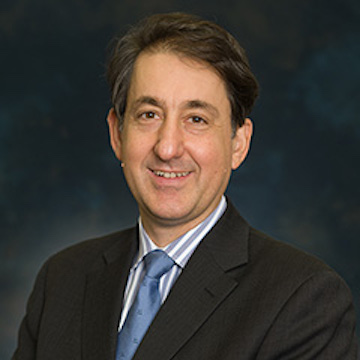
Tort Law and the Role of Insurance
October 20, 2022, 4 – 5 p.m.
John Goldberg, Harvard Law School
Benjamin Zipursky, Fordham Law School
John Goldberg and Benjamin Zipursky, the two most-cited torts scholars in the United States today, join us to discuss their influential ‘civil recourse’ theory of tort law, recently laid out in their book Recognizing Wrongs (2020). The webinar will address how their account – which focuses mainly on the ‘victim’ and the ‘wrongdoer’ – can explain the pervasive and crucial presence of liability insurance in the tort system. It will also consider questions such as these: Is a morally inflected interpretation of tort law applicable to today’s world, in which settlement is the rule and adjudication to judgment the exception? What does contemporary tort theory have to say about the validity of cost-spreading rationales and mass tort litigation? When, if ever, should no-fault or other insurance mechanisms replace tort law as a means of dealing with the accidents characteristic of our modern, hi-tech world?
Watch the video.
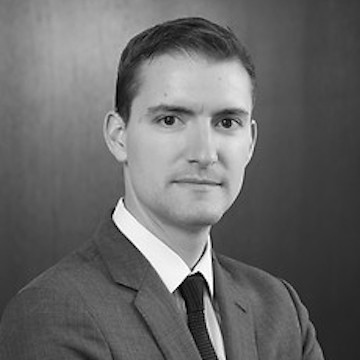
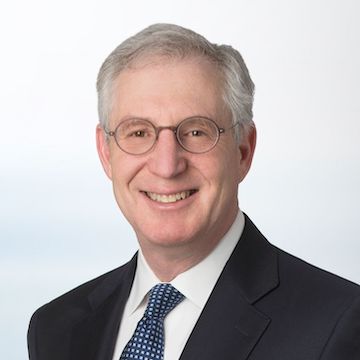
J.P. Morgan Securities Inc. v. Vigilant Ins. Co. and the Nature of Insurance Coverage
November 3, 2022, 4 – 5 p.m.
Daniel Sullivan, Holwell Shuster & Goldberg
Seth Schafler, Covington & Burling
Two of the chief litigators involved in one of the most closely-watched insurance law cases in recent years, J.P. Morgan Securities Inc. v. Vigilant Insurance Co., join us to discuss the many interesting questions it raised. The case, recently decided by the New York Court of Appeals, asked whether a $140 million “disgorgement” payment to the SEC for alleged illegal trading practices was a covered loss under a policy that provided coverage for “wrongful acts” but not for “fines and penalties imposed by law.” The case raised some profound questions, including: What types of losses (e.g., intentional harm, punitive damages, etc.) are uninsurable as a matter of public policy? To what degree should labels like “penalty” or “disgorgement,” when used in a non-insurance context, be allowed to determine coverage under an insurance policy that uses similar terms? (The Court of Appeals opinion is available at https://www.nycourts.gov/CTAPPS/Decisions/2021/Nov21/61opn21-Decision.pdf)
Watch the video.

Conflicting Interests and the Effect of Fiduciary Duty — Evidence from Variable Annuities
November 17, 2022, 4 – 5 p.m.
Mark Egan, Harvard Business School
Variable annuities are popular retirement products, with over $2 trillion in assets in the United States. Brokers receive substantial commissions from insurers for selling these products, and the commissions are higher for annuities with higher expenses and more ex-post complaints. But variable annuity sales are roughly four times as sensitive to brokers’ financial interests as to investors’. The Department of Labor’s 2016 fiduciary rule led to a 52% drop in high expense annuities, and on conservative assumptions, it increased investor welfare.
Watch the video.

Externalities in the Wildland
December 1, 2022, 4 – 5 p.m.
Mark Pauly, Wharton School, University of Pennsylvania
This presentation, Externalities in the Wildland – Urban Interface: Private Decisions, Collective Action, and Results from Wildfire Simulation Models for California, addresses the fact that much of the property damage from wildfires occurs when fires spread into built-up areas, the wildland/urban interface. In these areas, fire spreads from house to house, as embers from one burning structure ignite neighboring ones. Homeowners can take measures to mitigate the chances that their house will ignite, but in doing so, they tend to ignore the benefits their actions create for their neighbors. The size of this external benefit depends on the assumed process of fire spread, which in turn depends on building density and the effectiveness of mitigation. An empirical model of this externality reveals the degree of underinvestment that individuals will undertake, and the corrective actions (including building code rules and subsidies for insurance premiums on mitigation activities). Because it will rarely be optimal to mitigate all homes, the optimal solution may involve unequal treatment and raise equity issues. Download the working paper.
Watch the video.
How Insurance Shaped the American Founding
January 20, 2022, 4 -5 p.m. ET
Hannah Farber, Columbia University
American maritime insurers used their position at the pinnacle of global trade to shape the new nation. The international information they gathered and the capital they generated enabled them to play central roles in state building and economic development. During the Revolution, they helped the U.S. negotiate foreign loans, sell state debts, and establish a single national bank. Afterward, they increased their influence by lending money to the federal government and to its citizens. By the early nineteenth century, insurers were no longer just risk assessors. Prof. Farber’s new book Underwriters of the United States reveals insurers as nation builders and market makers.
Watch the video.
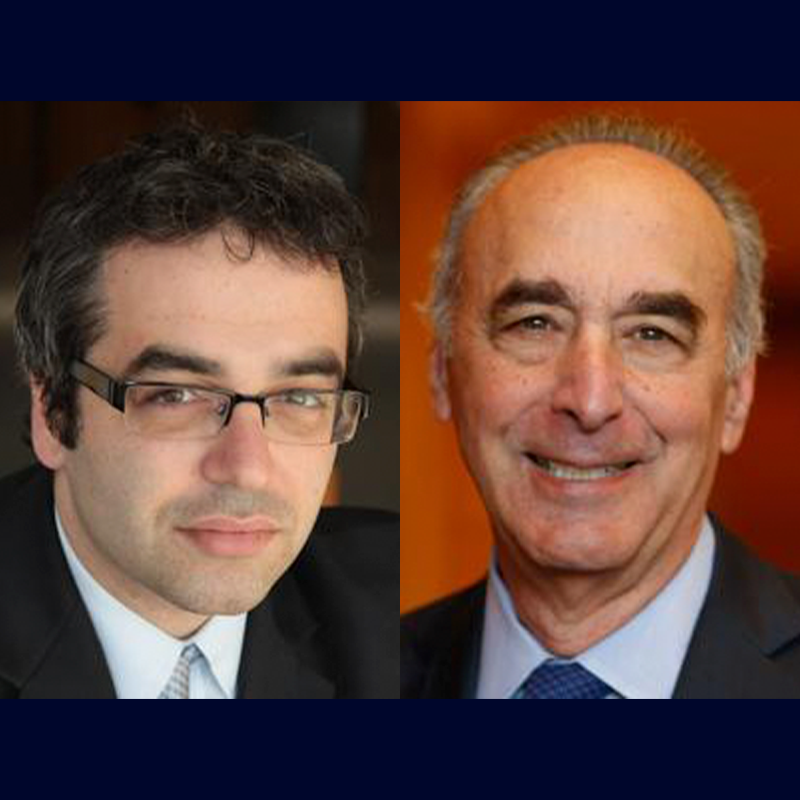
Not So Fast: The Limits of Regulation by Insurance
January 27, 2022, 4 – 5 p.m. ET
Kenneth Abraham, University of Virginia School of Law
Daniel Schwarcz, University of Minnesota Law School
Insurance law scholars have long believed that insurance does more than just transfer risk: it plays a key role in regulating the conduct of policyholders by creating incentives for risk management and in some cases requiring or forbidding certain behavior. Some have claimed that the power of insurance can be a potent substitute for direct regulation by government. Professors Abraham and Schwarcz argue that the ability of insurance to substitute for governmental regulation is more limited than we have realized.
Watch the video.
Why Health Insurance Consumers Make Bad Choices
February 3, 2022, 4 – 5 p.m. ET
Justin Sydnor, University of Wisconsin-Madison School of Business
Empirical evidence shows that for many employers who offer different levels of health insurance coverage (e.g., a high-deductible option alongside a more generous plan), one of the options ends up dominating the other, meaning that one plan is simply worse than the other for all consumers. This seems to occur because employers pass through cost differentials between the employees who opt into low vs. high coverage (typically younger/healthier vs. older/less healthy). Offering different coverage options (without any constraints on how those options are priced to the employees) creates a back-door that permits differential benefits based on health status. This talk explores the empirical and theoretical aspects of consumers choice of health insurance plans, and suggests ways that regulation should be designed to cope with consumers’ cognitive infirmities.
Watch the video.

Does the Policyholder Really Know Better? A Reversal of the Basic Assumption of the Theory of Adverse Selection.
February 17, 2022, 4 – 5 p.m. ET
Casper de Jong, retired insurance executive
Adverse selection occurs when insurance purchasers know more about their own riskiness than insurers do, and use that knowledge in deciding how much or what kind of insurance overage to purchase. Theory and much regulatory practice assume that this kind of informational asymmetry (favoring policyholders) is universal; but Mr. de Jong challenges this basic assumption, arguing instead that insurers typically know more about their policyholders’ riskiness than the policyholders themselves do. This talk explores the causes and consequences of this informational reversal.
Watch the video.
The Case for Banning (and Mandating) Ransomware Insurance
February 24, 2022, 4 – 5 p.m. ET
Kyle Logue, University of Michigan Law School
Cyber-ransom poses difficult policy questions. On the one hand, the presence of insurance may actually increase the profitability of ransom-ware attacks and create incentives for more of them. On the other, properly constructed and well-regulated insurance offers a variety of pre- and post-breach services that can reduce the likelihood and severity of ransomware attacks. This talk discusses how best to structure insurance regulation to handle these difficult tradeoffs.
Watch the video.
The Dark Side of Insurance
March 3, 2022, 4 – 5 p.m. ET
Ronen Avraham, Tel Aviv University Faculty of Law
Insurance has well-known and important benefits; but it has an overlooked dark side as well. Insurers sometimes deny coverage unjustly, shifting short-term risks to insureds (or their victims) rather than reducing them. Worse, insurers might also act to increase long-term risks: They may provide suboptimal incentives for insureds to take care, as well as present wrongdoers with incentives to target insureds as victims. Further, insurers may block technological progress and lobby for inefficient regulation, even at the expense of more long-term risks to their insureds and society. Insurers may even invest in risky products and activities to increase the demand for insurance coverage against these very same risks. Wise policy requires taking account of the dark side of insurance.
Watch the video.

Insurance Law and the Firearms Industry
March 10, 2022, 4 – 5 p.m. ET
Peter Kornman, retired attorney, Davis, Polk & Wardwell
Federal legislation known as the Protection of Lawful Commerce in Arms Act (PLCAA) poses significant limits on the ability of state governments to regulate what would otherwise be the tortious behavior of arms manufacturers. This talk explores how state governments can operate at the intersection of insurance regulation, McCarran/Ferguson, and the PLCAA to regulate gun manufacturer liability.
The Moral Economy of the Insuring Crowd
March 24, 2022, 4 – 5 p.m. ET
Geoffrey Clark, State University of New York at Potsdam
Insurance is commonly seen as a scientific application of statistical collection and probabilistic analysis to infer the value of risks. Viewed historically, however, insurance arose in a wider philosophical, religious, and political matrix in which claims to scientific knowledge and precision were just one, and not even the most important, component. This talk will survey how the origins of the life insurance business offer clues about how insurance was understood in its formative decades and how many people may understand the way insurance operates today.
Watch the video.

Race and Insurance
March 31, 2022, 4 – 5 p.m. ET
Jessica Altman, Former Insurance Commissioner for the Commonwealth of Pennsylvania
Andrew Mais, Commissioner of the Connecticut Insurance Department
My Chi To, Executive Deputy Superintendent of Insurance at New York State Department of Financial Services
We present a panel discussion in which three distinguished regulators share their views on the difficult questions posed by race-based discrimination in insurance markets.
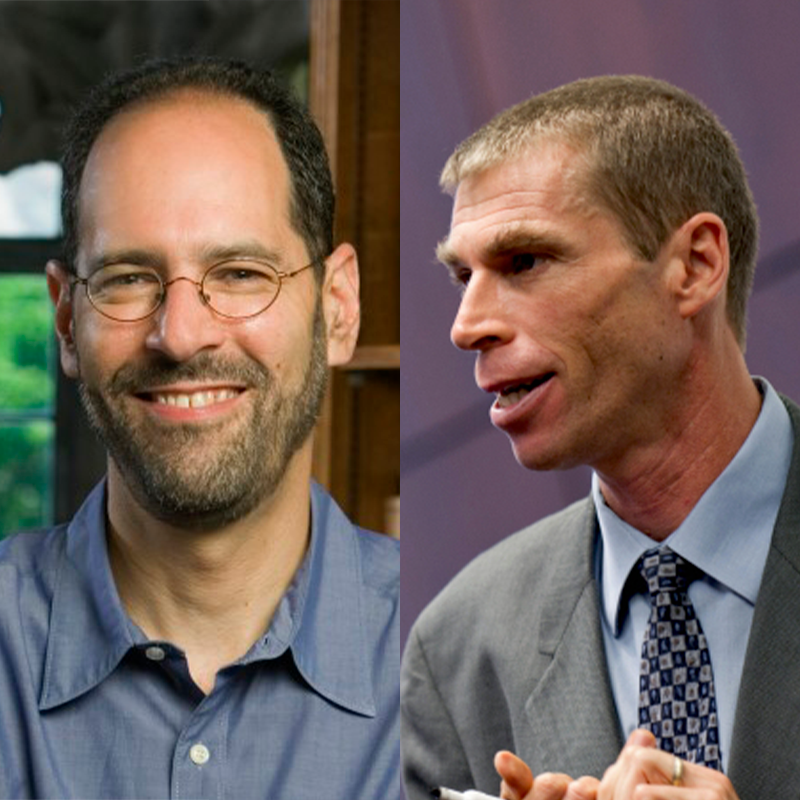
Third Party Moral Hazard
April 7, 2022, 4 – 5 p.m. ET
Peter Siegelman, University of Connecticut School of Law
Gideon Parchomovsky, University of Pennsylvania Law School & Hebrew University Faculty of Law
Conventional moral hazard occurs when the transfer of risk from policyholder to insurer leads the former to reduce its level of precautions. We surface a related phenomenon: insurance can lead third parties (who are outside of the insurance contract) to increase loss- or claims-causing behavior. Such negative externalities from insurance are widespread, and the authors offer an explanation for their origins and discuss some policy implications.
Watch the video.
Inclusive (Flood) Insurance
April 14, 2022, 4 – 5 p.m. ET
Carolyn Kousky, University of Pennsylvania
The mid-Atlantic region of the United States is experiencing accelerated rates of sea level rise, increasing flooding. And the problem is worst for lower-income residents. Unfortunately, these same residents struggle with access to the needed financial resources to recover from floods. Such recovery is a necessary condition for broader urban disaster resilience. Despite this, flood coverage for low and middle-income residents is an under-researched aspect of climate adaptation. This talk reports on ongoing research to promote accessible flood insurance for lower-income communities, with a particular focus on New York City.
Watch the video.
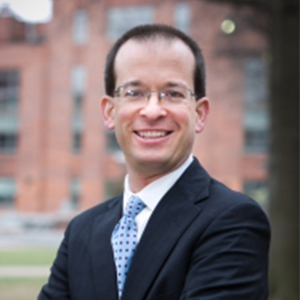
Livelihood Insurance
January 21, 2021, 4 -5 p.m.
Michael Abramowizc, George Washington Law School
Nobel Laureate Robert Shiller has argued for livelihood insurance, a financial derivative that would provide compensation when many individuals in a particular occupation suffer losses. This talk will explore why livelihood insurance did not emerge in time to protect workers in the last pandemic and what the government can do before the next crisis to protect workers in vulnerable professions.
Watch the video.
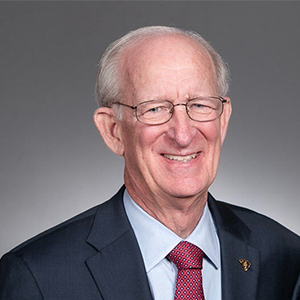
The Year We Got: Covid, 2020 and the NAIC
February 4, 2021, 4 -5 p.m.
Ray Farmer, South Carolina Department of Insurance
South Carolina Director of Insurance Ray Farmer became the NAIC president in January 2020, expecting the major issues would include the long-term care insurance market, climate and resiliency, continued uncertainties with the ACA and access to affordable health insurance, international regulatory cooperation, and the growing role of Big Data and predictive analytics. Then the pandemic arrived, demanding immediate regulatory attention and leadership, and a spring and summer of protests moved race and racism to the forefront. Several months after his term, Director Farmer will discuss 2020 and the NAIC.
Watch the video.
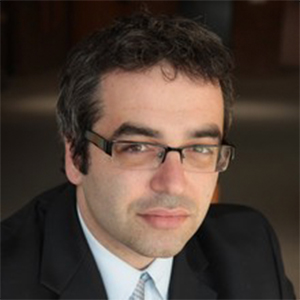
The Rules of Medical Necessity
February 11, 2021, 4 -5 p.m.
Daniel Schwarcz, University of Minnesota Law School
Historically, health insurance contracts have required coverage of virtually all “medically necessary,” “non-experimental,” care, with these terms being defined through broad standards. In recent years, however, health insurers’ contracts and practices have moved towards a more rules-based approach for defining covered health care. This talk explores how this shift undermines the effectiveness of traditional legal tools designed to constrain the risk of health insurers overreaching in coverage determinations, such as litigation, external review, internal review, and coverage mandates.
Watch the video.
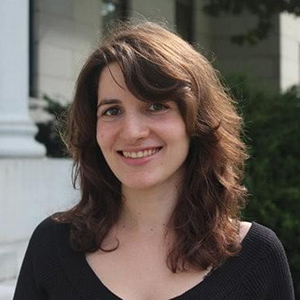
Buying Data from Consumers
The Impact of Monitoring Programs in U.S. Auto Insurance
February 18, 2021, 4 -5 p.m.
Shoshana Vasserman, Stanford Business School
What happens when insurers gain better information about the riskiness of their customers? The question is of tremendous importance as new technologies allow insurers to monitor customers’ behavior and use that information to price their product. But little is known about the equilibrium effects of this kind of information–how is it priced, who agrees to provide it, what effect it has on competition among insurers, and how it affects overall welfare. This talk offers an empirical perspective on these issues.
Watch the video.

Genetic Non-Discrimination
February 25, 2021, 4 -5 p.m.
Anya Prince, University of Iowa Law School
Florida has recently passed legislation that bars life (and long-term care and disability) insurers from using genetic information in underwriting. This talk explores the intricacies of the legislation and discusses how effective it is likely to be.
Watch the video.
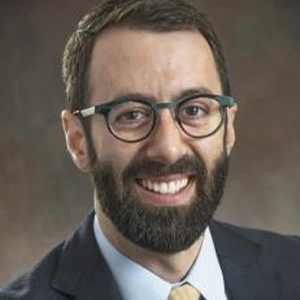
How Private Insurers Regulate Public Police
March 11, 2021, 4 -5 p.m.
John Rappaport, University of Chicago Law School
Can insurance can be used to regulate police misconduct? How effective has it been in doing so, and why might it be an effective option going forward? This talk addresses these and related issues at the intersection of insurance and civil rights.
Watch the video.

Long Term Care Insurance
March 25, 2021, 4 -5 p.m.
Tom Baker, University of Pennsylvania Carey Law School
Long term care insurance is an inherently risky product, since the evolution of medical costs is subject to great uncertainty and since socio-legal risk is highly correlated across insureds. This talk explores how insurers manage such risks.
Watch the video

Liability Claim Evaluation, Big Data, and the Persistence of Uncertainty
April 1, 2021, 4 -5 p.m.
Patricia Born, Florida State University
Outcomes of medical malpractice lawsuits reflect a great deal of uncertainty for insurers, despite their access to historical claims experience and evolving sources of “Big Data.” Variations in how people recover from certain types of injuries and how juries perceive fault, for example, can have large effects on claim payout variability. This presentation explores the role of injury types, juries, and other factors that may explain why an insurer’s initial assessment of how a claim will evolve is often off the mark.

InsurTech Adventures in Insurance Regulation: Windows, Walls and Trap Doors.
April 8, 2021, 4 -5 p.m.
Bill Goddard, Electromagnetic Advisors and UConn School of Law
What happens when the world of technology meets the world of insurance? This talk offers an insider’s account of how we got where we are, and where we’re going from here.
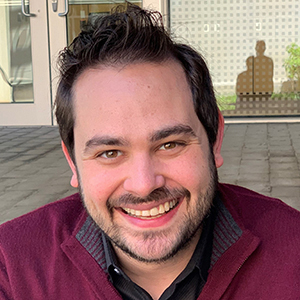
Insuring an Evolving Mobility Ecosystem: From Mustang Sally to Waymo One
April 15, 2021, 4 -5 p.m.
Asaf Lubin, University of Indiana Law School
It is widely believed that the adoption of autonomous vehicles will lead to a continual decline in the frequency of accidents and a shift towards products liability that will bring an end to automobile insurance as we know it. This presentation will make the case that automobile insurance is not going anywhere, though insurers, regulators, and manufacturers will need to adapt to a changing mobility environment.
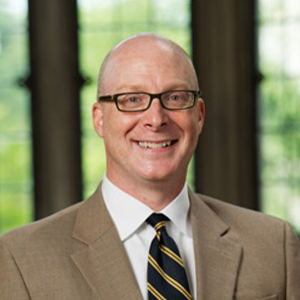
Gender in Health Insurance Pricing
April 22, 2021, 4 -5 p.m.
John Cogan, University of Connecticut School of Law
Gender rating—charging women higher premiums than men—is justified on the basis of actuarial fairness (each gender bears the cost of its own risk and does not subsidize the other). This reasoning ignores an underlying theoretical flaw in insurance classification theory: no matter what variables an insurer uses to classify risks, there will always be cross-subsidies and risk-based unfairness. Thus, I argue that using gender as a rating variable is a policy choice by insurers, not an actuarial or economic necessity.
Watch the video.
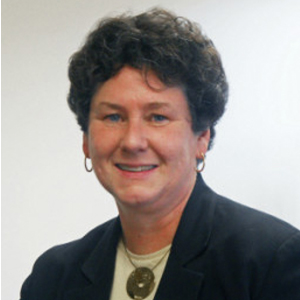
Workers Compensation, COVID-19 and Emerging Issues
April 29, 2021, 4 -5 p.m.
Susan Donegan, National Council on Compensation Insurance
Workers Compensation is the nation’s oldest social insurance system and while it has adapted as the workplace evolves, its core components of payment for medical care and income replacement due to work-place injuries and disease remain the same. With COVID-19, the importance of these benefits, their cost, and the difficulties in demonstrating causality between infection and the workplace, has led states to review their workers compensation systems and consider whether to rebalance some of its central components.










